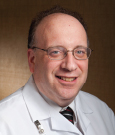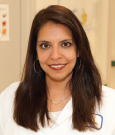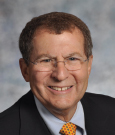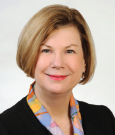Several times during his lecture at the 2014 ASCO Annual Meeting, Stuart M. Lichtman, MD, FACP, FASCO, the recipient of the B.J. Kennedy Award for Scientific Excellence in Geriatric Oncology, emphasized, “Physician education is the key” to continued advances in geriatric oncology. He specified that physician education is critical to overcoming ageism and barriers to treatment for older patients, to increasing participation of older patients in clinical trials, and to obtaining and applying data from clinical trials to optimize treatment for geriatric oncology patients. Dr. Lichtman is an attending physician at Memorial Sloan Kettering Cancer Center and former Chair of that institution’s 65+ Clinical Geriatric Group, and Professor of Medicine at Weill Cornell Medical College, New York.
Dr. Lichtman was recognized for “outstanding leadership and scientific contributions in the field of geriatric oncology and for his dedication and commitment to mentoring young geriatric oncologists,” former ASCO President Sandra M. Swain, MD, FACP, noted in presenting the award. “For more than 2 decades, Stu Lichtman has devoted his career to providing quality care to underserved and undertreated older patients with cancer,” Dr. Swain stated. She is Medical Director of the Washington Cancer Institute, MedStar Washington Hospital Center, Washington, DC.
In advancing the cause of geriatric oncology, “one of the things we’ve always had to fight is the negative perception of aging—the whole issue of ageism—and I think it is still pervasive today to some degree,” Dr. Lichtman said. Ageism is exemplified by the derogatory terms sometimes used to describe older people, such as biddy or geezer, and by stereotypes of older people as helpless victims or bizarre and comical. Ageism “is why we have such difficulty getting older patients on clinical trials,” Dr. Lichtman said. He acknowledged that positive images are “fortunately becoming more common.”
Start of the Movement
“Some people believe that the real start of the cancer and aging movement was in 1983,” he said, at a meeting entitled Perspectives on Prevention and Treatment of Cancer in the Elderly. Among the driving forces of that meeting were B.J. Kennedy, MD, and Rosemary Yancik, PhD.
“In the summary of that meeting, Rosemary Yancik identified a number of pervasive issues, the issues that we are still talking about today,” Dr. Lichtman noted.1 Those issues involve discrepancies between physiologic and calendar age, changes in the population’s age structure and cancer control in the elderly, and the roles of physicians and the older people in cancer prevention and treatment.
“She also identified a number of approaches to increase the knowledge base,” Dr. Lichtman continued. These included prospective clinical trials, epidemiologic and longitudinal studies, as well as assessments of the pharmacokinetics and drug sensitivity of older patients with cancer. The conference participants concluded that there were several pressing needs: the need to examine factors unique to older persons, the need to obtain baseline data on the clinical interface of cancer and aging, and “particularly important” in Dr. Lichtman’s view, the need for an “interdisciplinary team approach far greater than an occasional collaboration.”
In 1989, provoked by two trials of adjuvant breast cancer treatment that excluded patients over 65 for arbitrary reasons, Dr. Lichtman and Daniel R. Budman, MD, at the time colleagues at North Shore University Hospital, Manhasset, New York, wrote a letter to The New England Journal of Medicine arguing that “patients over 65 should be given due consideration in terms of receiving adjuvant therapy and participating in clinical trials.”2
“This is really where my cancer in the elderly career started,” Dr. Lichtman said.
In 1991, he wrote an article in the New York State Journal of Medicine noting that elderly patients were underserved in cervical cancer screening.3 Many other articles followed. Dr. Lichtman has published more than 100 articles, although not all related to cancer in the aging population, in peer-reviewed journals.
Meeting Milestones
In 1994, the Cancer in the Elderly meeting in Genoa, Italy, had “a truly international focus” and was the progenitor of the International Society of Geriatric Oncology (SIOG), Dr. Lichtman reported. That meeting also established “geriatric oncology as we know it,” he added.
“ASCO got on board in the year 2000,” with the educational symposium, Cancer Care in the Elderly: An Integrated Approach. “This was truly important to me in terms of my journey through geriatric oncology because this is where I started my collaboration with Arti Hurria,” Dr. Lichtman related. Arti Hurria, MD, received the B.J. Kennedy Award last year and is Director of the Cancer and Aging Program at the City of Hope Comprehensive Cancer Center in Duarte, California.
In 2002, ASCO issued a curriculum for cancer care in the older population. “We were talking about the ASCO curriculum today actually,” Dr. Lichtman noted, “and we really have to improve upon it, update it. But when you think back on all the issues about cancer and ageism and how to do the things we want to do, physician education is to me truly the key to overcoming ageism, to overcoming the barriers to treatment.”
Optimize Data on Older Patients
“Probably one of the most important studies to come out of the last couple of years,” Dr. Lichtman stated, was on adjuvant chemotherapy in older women with early-stage breast cancer, led by Hyman B. Muss, MD, Director of UNC Lineberger Comprehensive Cancer Center’s Geriatric Oncology Program, and published in The New England Journal of Medicine in 2009.4 “One of the strong points of that study was that physician/patient preference was allowed to be part of the therapeutic decision-making.” The study also pointed out that “well-designed databases can provide a huge amount of important information if designed in a prospective, well-thought-out model,” Dr. Lichtman added.
Database studies have shown that compared to younger women, older women with metastatic breast cancer or ovarian cancer who take paclitaxel have increased risk of neurotoxicity. The lessons learned from this, Dr. Lichtman said, are that “while randomized studies are preferable, observational studies are important. We need to do longitudinal assessment, and the analysis of well-constructed databases is a gold mine of data. It has much to teach us, and some of it lies still hidden.”
Can Toxicity Be Predicted?
A study led by Dr. Hurria “looking at various clinical predictors of toxicity has become an important component of multiple clinical trials and is embedded now in the assessment of older patients with cancer,” Dr. Lichtman noted.5 “One of the highlights of this was the idea that we could possibly make very important predictions of toxicity with really very simple and straightforward clinical parameters—hemoglobin, creatinine clearance, and very simple history-taking and geriatric assessments. I think it points out to clinicians that you don’t have to do a 12-hour comprehensive assessment.”
This study and others have shown that an assessment of toxicity predictors can be worked into a physician’s busy schedule and “can be very valuable in terms of helping us to make clinical decisions,” Dr. Lichtman said. “The model was highly predictive of grade 3+ toxicity,” Dr. Lichtman noted, and particularly improved on the Karnofsy performance score. “Clinical judgment is limited and is often misleading. We need these aids.”
Predictive models need to be evaluated in different clinical situations. “In a targeted-therapy environment in which we are giving less chemotherapy, does [a predictive model] have the same importance? We really have to think about how we are going to assess patients who are getting targeted therapy alone, which is going to become more popular.”
What’s Needed in Clinical Trials?
Elder-specific trials are still needed, he said, “because the current system we have doesn’t seem to be working, if over 30 years, we are still decrying the fact that older persons are still underrepresented in clinical trials.” Studies looking at the barriers to participation in clinical trials have shown that in some cases, the barriers “are us—the physicians—to a large extent,” Dr. Lichtman said. “Again, it points out that physician education is really the key.”
For large randomized trials that are not elder-specific, but in which older persons may make up 15% to 20% of patients, Dr. Lichtman proposed that authors “set up the trial to optimize the amount of data that we can obtain from older patients.” Currently, he said, the data on older patients are not always readily available.
Good Position to Advance
The field of geriatric oncology is in a good position to advance, according to Dr. Lichtman. “ASCO plays an important role in the future of geriatric oncology, particularly as publisher of the Journal of Clinical Oncology.” Dr. Lichtman stated. Other organizations such as the International Society of Geriatric Oncology, the Cancer and Aging Group, and the Alliance also continue to make valuable contributions.
“We’ve come a long way,” in geriatric oncology, Dr. Lichtman concluded. Older patients constitute “the largest group of cancer survivors because of all we are doing.” ■
Disclosure: Dr. Lichtman reported no potential conflicts of interest.
References
1. Yancik R, Carbone PP, Patterson WB, et al (eds): Perspectives on Prevention and Treatment of Cancer in the Elderly, Aging, vol 24. New York, Raven Press, 1983.
2. Lichtman SM, Budman: Adjuvant therapy for node-negative breast cancer (correspondence). N Engl J Med 321:469-473, 1989.
3. Lichtman SM: Geriatric oncology: cervical cancer screening in elderly women. NY State J Med 91:147-149, 1991.
4. Muss HB, Berry DA, Cirrincione CT, et al: Adjuvant chemotherapy in older women with early-stage breast cancer. N Engl J Med 360: 2055-2065, 2009.
5. Hurria A, Togawa K, Mohile SG, et al: Predicting chemotherapy toxicity in older adults with cancer: A prospective multicenter study. J Clin Oncol 29:3457-3465, 2011.





